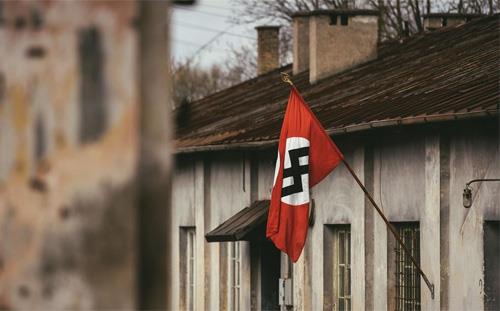
However you feel about the apparent outcome of last Tuesday's American presidential election, you should be chilled by a new three-part PBS docu-series that illustrates how easily democracy can die.
Rise of the Nazis, which premieres Tuesday at 9 p.m. ET on PBS (check local listings), walks the viewer step-by-step through Adolf Hitler's ascent to power in the Germany of the early 1930s.
Within four years, Germany devolved from a relatively standard Western democracy, with an elected president and representative elected governing body, into a dictatorship whose agenda catapulted the nation onto a monstrous and disastrous path of genocide and attempted world conquest.
The consequences of that turnabout were so unspeakable for the world and for Germany itself that the overwhelming majority of those who merely survived the era vowed "never again."
Rise of the Nazis doesn't dispute the sincerity of that resolve, nor does it superimpose Germany of the 1930s onto any current nation.
What it does is explore incidents and behaviors that have surfaced or resurfaced through recent years that, in America and elsewhere, echo elements from the Nazi ascent.
That is to say, Rise of the Nazis serves as a reminder that history offers cautions worth heeding.
It notes, for instance, that as the Nazis were strategizing their rise to power, they formed a paramilitary wing, the Stormtroopers. These were essentially street thugs, men who would attempt to intimidate perceived enemies first with threats of violence and later, as they became emboldened and saw there would be no consequences, with actual violence.
They were bullies, and like all bullies, they tried to avoid fair fights. They would find a group of "enemies" gathered for a peaceful purpose and surround them with guns, or attack individuals with a mob.
The Stormtroopers were particularly valuable to the Nazis because they carried out their early street campaigns without any official connection to the party. This approach sent the Nazi message while allowing party members to reassure fence-sitting voters that their agenda was not as crude as beating up people they didn't agree with.
The Nazis applied that same principle in the broader scope, employing the classic incremental recruitment strategy of cults everywhere.
Initially, they focused on one or two particular issues that were uncontroversial enough to draw widespread support, or at least not spark any strong backlash.
In the case of the Nazis, that prominently included rebuilding Germany's standing in the world, which had crumbled in the aftermath of World War I. What German was against that?
It included putting Germans to work as a way of combating the Great Depression. Who could think that was a bad idea?
So even though some of the more extreme aspects of Nazi policy were no secret – Hitler's Mein Kampf had been in print for years – those spotlight goals seemed reasonable enough that they gave ordinary Germans a rationale for allowing the Nazis a chance.
At the same time, on a more subtle and way more insidious level, those seemingly benign plans eased those ordinary Germans toward accepting the more extreme elements of the Nazi vision. It gave them "permission," as psychologists would say, to accept or at least not actively dispute the idea that Jews truly were trying to subvert real German culture.
Therefore, maybe the Aryan race really is superior, and the world would be better off if Aryans ruled.
It sounds insane. But a whole lot of Germans, and eventually collaborators and sympathizers in other countries, nodded and went along.
One of the unresolved chilling questions about Nazi Germany, 75 years after it fell, is whether the country was dominated by "good people" who were swept up in Hitler's madness, or whether there was a strong majority buy-in – that once Hitler had told his citizens it was patriotic and noble for militaristic white supremacists to rule the world, and assured them he could pull it off, most white Germans climbed on board.
Rise of the Nazis doesn't focus explicitly on that aspect of Hitler's ascent. Instead, it offers a precise, chronological, nuts-and-bolts analysis of how it happened, from the initial foothold step-by-step to total victory.
It's no fun to watch. However, it should be watched because the more vivid our understanding of 1930s Germany, the better armed we are to keep that vow of "never again."